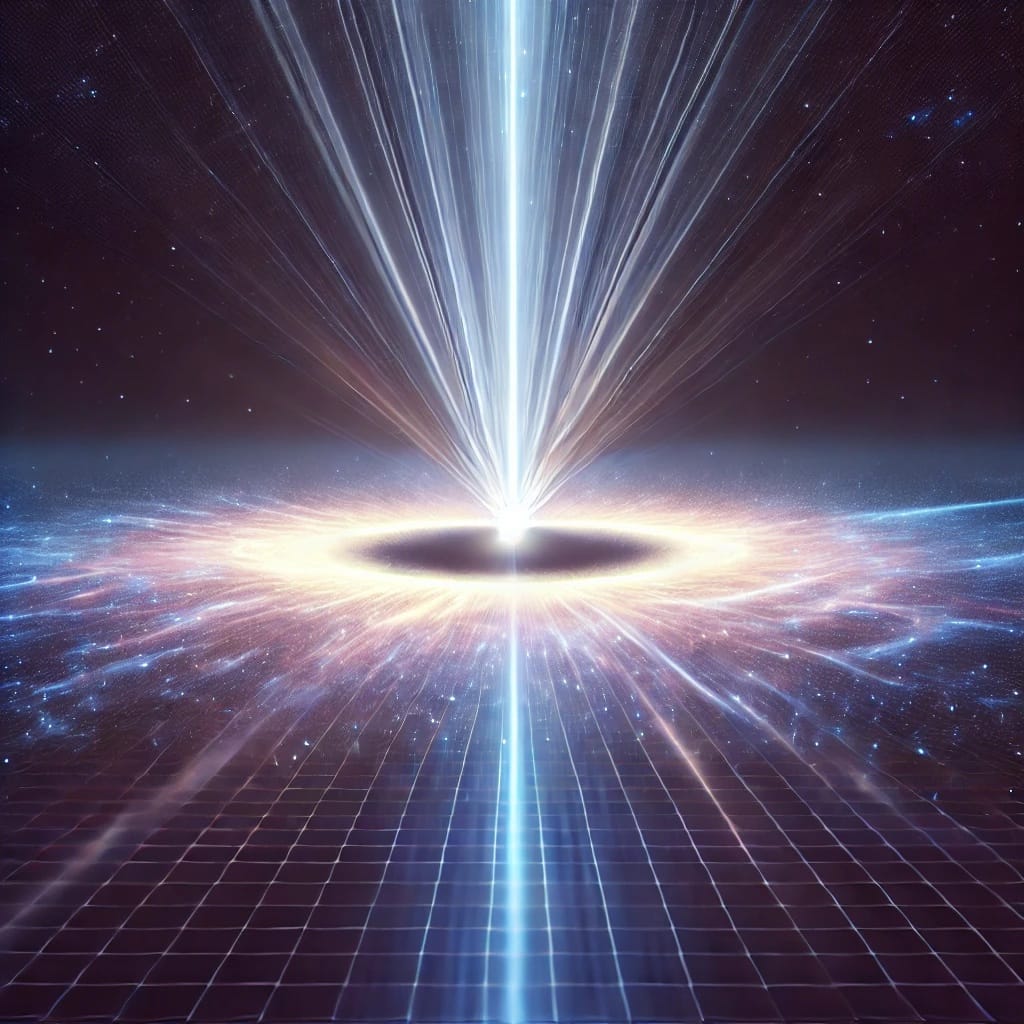Singularity: A Relativistic Perspective
#science #physics #time #singularity #light

What if our understanding of the universe is limited by the fact that we perceive it through the lens of mass, time, and space?
Modern physics offers tools to rethink these concepts—especially when we consider the behavior of light.
Light and the Absence of Time
In Einstein’s theory of special relativity, the speed of light in a vacuum is a constant for all observers. One striking consequence is that, from the reference frame of a photon (a particle of light), time does not pass.
This happens due to time dilation: as an object approaches the speed of light, time slows down relative to an outside observer. At light speed, this effect becomes infinite, meaning that for a photon, the time between emission and absorption is effectively zero.
The Collapse of Space
Another consequence of relativity is length contraction. As an object approaches the speed of light, distances along its direction of motion appear to contract. At the speed of light, this contraction becomes total—space along that axis collapses to a single point.
This means that from a photon’s “perspective” (strictly speaking, photons don’t have valid reference frames in relativity), it doesn’t travel through space. It simply appears at its destination.
Mass, Time, and Sequence
Particles with mass—such as electrons, protons, and all objects composed of matter—experience time and space. They are bound by gravity and inertia and are constrained to move through spacetime at less than the speed of light. For them (and us), time unfolds in a continuous sequence, and space is measurable and traversable.
This duality—between massless particles outside of time and space, and massive particles embedded within it—offers an intriguing contrast.
A Universe That Begins and Ends with Light?
Now consider this speculative but grounded idea: what if everything in the universe originated as pure energy, or light? According to the Big Bang model, the early universe was an extremely hot, dense state—effectively a singularity.
As it expanded, energy condensed into matter, and with it came the emergence of space and time. If, in the distant future, the universe collapses back into a singularity or fades into a state dominated by radiation, it may return to a form that again resembles a light-like state.
From that perspective, the entire history of the universe—from Big Bang to end state—might be experienced as a single, timeless event. For light, everything has already happened. Or nothing has.
The Universe as a Singularity
This brings us to a provocative reinterpretation: perhaps the universe is, in a fundamental sense, still a singularity—not in the gravitational-collapse sense, but in a relativistic one. A place where time and space are not intrinsic qualities, but emergent effects tied to mass and motion.
We experience the unfolding of events because we are bound by mass. But the deeper, more unified picture may be timeless and spaceless—an undivided whole, perceived differently depending on how we look at it.